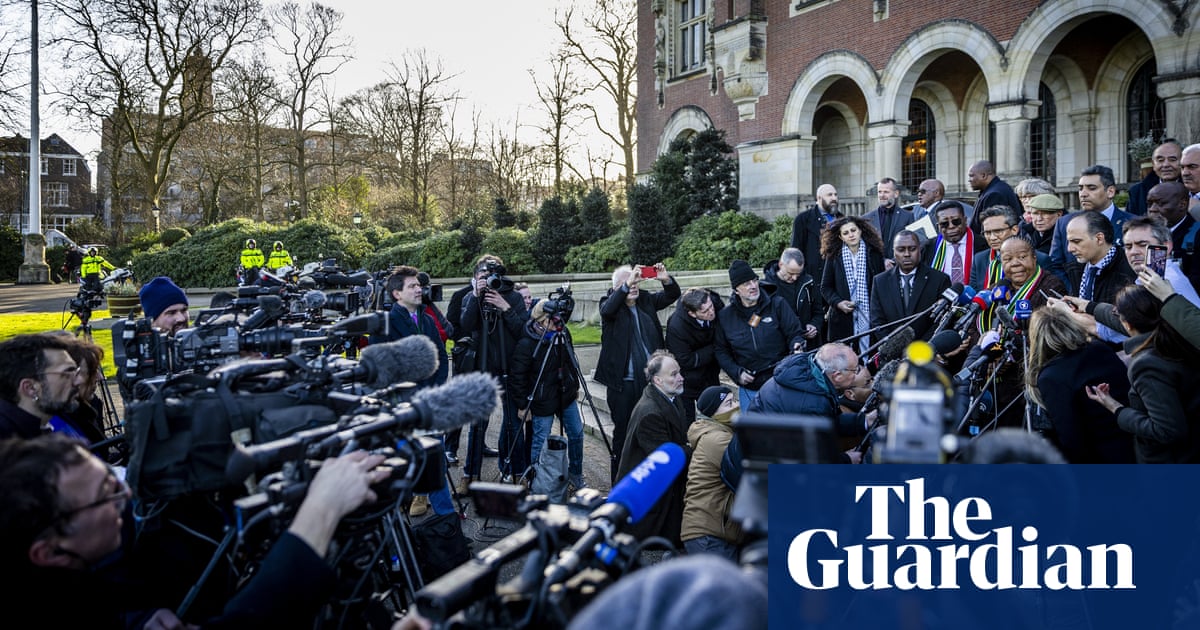In an interim judgment delivered on Friday, the president of the court, Joan Donoghue, said Israel must “take all measures within its power” to prevent acts that fall within the scope of the genocide convention and must ensure “with immediate effect” that its forces do not commit any of the acts covered by the convention.
The court stopped short of granting South Africa’s request to order an immediate ceasefire to the war, which has destroyed much of the Gaza Strip and killed more than 25,000 Palestinians, according to Gaza health authorities.
The ruling is not the final word from the court on whether Israel’s actions amount to genocide, but it provides a strong indication that the judges believe there is a credible risk to Palestinians under the genocide convention. Granting South Africa’s application for special measures, the court did not have to find whether Israel had committed genocide, which will be determined at a later date, but only that its acts were capable of falling within the genocideconvention and that urgent preventive action was necessary.



It is crucial to understand the weight and gravity of the term “genocide”. It is not a term to be thrown around lightly or used carelessly. The act of genocide is the deliberate and systematic extermination of a national, ethnic, racial, or religious group. It is a heinous crime against humanity and a violation of the most fundamental human rights.
Unfortunately, the term “genocide” has been misused and abused in recent times. The ongoing conflict in certain regions of the world has led to the misapplication of the term, especially in situations where it does not necessarily apply. The mislabeling of such conflicts as “genocides” is not only inaccurate but also disrespectful to the victims of actual genocides.
The Tutsi in Rwanda, the Cambodians by the Khmer Rouge, the Armenians by the Ottoman Empire, and Darfur are just a few examples of the horrific atrocities that have been committed in the name of genocide. These are real genocides with real victims, and to equate them with other conflicts that do not meet the criteria of genocide is to belittle the suffering and pain of those who have endured such atrocities.
It is important to distinguish between acts of violence and genocide, as the latter is a specific and intentional crime. The use of the term “genocide” inappropriately can have serious consequences, including the potential to undermine legitimate efforts to prevent and respond to actual genocides.
Therefore, it is essential to use the term “genocide” with caution and precision. Those who misuse the term, either intentionally or out of ignorance, do a disservice to the victims of real genocides and hinder efforts to prevent such crimes from occurring in the future.
The state of Israel is committing genocide with its systematic extermination and resettling of the Palestinian people.
Please make a comparison to the genocide of the Darfur people, the Tutsi, The Cambodians The Armenians just for a start. Then you might understand why this is not a genocide nor is it correct to call it one. I’ll be anxiously awaiting your comparison.
Sounds Familiar
The appropriate thing to compare it to is the concept of genocide. Anything else is a distraction.
So here’s a widely used definition:
https://en.wikipedia.org/wiki/Genocide_Convention
Not everyone accepts this definition, but those who disgree tend to argue that it’s not inclusive enough, not that it’s too broad:
https://en.wikipedia.org/wiki/Genocide
No thanks. You just did it for me
Totally, and it certainly applies here.
ICJ Ruling archived here because NYT sucks
800+ Legal Scholars on International Law and Genocide on whether it amounts to genocide
5 more experts on the subject
Law for Palestine Releases Database with 500+ Instances of Israeli Incitement to Genocide
GDF has a pretty good video on it imo
Here is an alternative Piped link(s):
GDF has a pretty good video on it imo
Piped is a privacy-respecting open-source alternative frontend to YouTube.
I’m open-source; check me out at GitHub.
I’ve never seen anybody gatekeep the definition of genocide before. Are you the entirety of the ICC, ICJ, and security council?
Are you saying the term is misused here?
Removed by mod
That’s objectively not true.
Tbqh, it wouldn’t matter if it was true, the Israeli government would still be committing mass murder on camera.